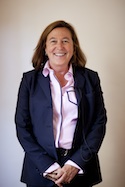Technology has helped us evolve as a society, especially within the health and medical field. However, technology has also evolved to where everything is accessible by the click of a mouse.
Many doctors' offices and hospitals are now posting your blood tests, MRIs and other tests online to make it easier for you to gather your health information.
You live in a digitally connected society where more than 2 billion people are using the Internet. When this many people are using online databases, the issue of privacy is a huge concern.
Are people more willing to transfer information online?
You might be wary of having your files online, but practitioners are trying to engage patients by asking them to share their own health story online, which is making it an easier transition.
You may think there are several pros to having everything online, but you might also see many cons. When it comes to your health records, are your records really private?
Founder of the Center for Body Computing, chief cardiologist at USC's Keck School of Medicine, Dr. Leslie Saxon, joins Melanie Cole, MS, to discuss the transformation of your health records moving online and any privacy concerns associated with the movement.

Health in the Digital Age: Are Your Records Private?
Guest
Info & Links: Leslie Saxon, MD
From the Show: Staying Well
Summary: The first principle of digital health is to have access to your own data. But what about other people being able to access your data and private information?
Guest Bio: Leslie Saxon, MD
 Leslie Saxon, MD, is a Professor of Clinical Medicine (Clinical Scholar) at the University of Southern California (USC) Keck School of Medicine and specializes in the diagnosis and treatment of cardiac arrhythmias and preventing sudden cardiac death.
Leslie Saxon, MD, is a Professor of Clinical Medicine (Clinical Scholar) at the University of Southern California (USC) Keck School of Medicine and specializes in the diagnosis and treatment of cardiac arrhythmias and preventing sudden cardiac death.Dr. Saxon is the Chief of Cardiovascular Medicine and she was recruited to USC from the University of California San Francisco where she was the Acting Chief of Cardiac Electrophysiology.
In addition to using state-of-the-art resynchronization devices in patients with arrhythmias, such as modified pacemakers and implantable defibrillators, Dr. Saxon also collaborates with medical device companies to evaluate the latest, most innovative interventional wearable technologies for the diagnosis and prevention of malignant ventricular arrhythmias and for patients with difficult-to-treat arrhythmias and heart failure. She is a member of Boston Scientific's Medical Advisory Board.
As a researcher, Dr. Saxon leads the Cardiovascular Research Unit (CRU) at USC, which focuses on studying the safety and effectiveness of new drug and device therapies in the areas of sudden death prevention, carotid artery disease, coronary artery disease, electrophysiology, heart failure, ischemic heart disease, heart attack and stroke.
She also serves as the National Chair of the Boston Scientific ALTITUDE project studying remote monitoring of implantable devices and is a member of the steering committee for the Left Atrial Pressure Monitoring to Optimize Heart Failure Therapy (LAPTOP-HF) study.
Dr. Saxon has completed over 100 publications in various medical journals and is an active member of a multitude of organizations, including the American Heart Association, and the Heart Failure Society of America. In addition, she is a fellow of the American College of Cardiology and the Heart Rhythm Society.
In 2002, Dr. Saxon co-chaired the first Heart Rhythm Society Conference in Cardiac Resynchronization. On October 26, 2007, Dr. Saxon was proud to host the First Annual USC Body Computing Conference, which brought together leading authors and futurists as well as leaders from the fields of medicine, design, entertainment, the FDA, investment banking, and pharmaceuticals for a day of intense discussions about the nascent but exciting field of wireless physiologic monitoring.
Dr. Saxon formed the USC Center for Body Computing in 2010. The Center is an international leader in the brave new world of connected healthcare in which medicine, engineering, communications, and entertainment have synthesized into creating a new healthcare paradigm that engages the patient fully.
The Center is currently a place for all USC schools including medicine, engineering, business, cinematic arts, communications, law, and pharmacy to work across disciplines and accelerate the future of fully integrated, "connected" medicine.
These activities include pre-clinical and clinical development and testing of wearable and implanted technology, including networked devices used in every major discipline of medicine, wellness, and fitness categories to develop device models and software that offer gaming and entertainment value based on real-time physiologic data; development of relationships with social media and gaming companies to disseminate medical information, enhance communication, and improve outcomes; conferences that evaluate what strategic partnerships are needed to solve some of the critical issues such as patient privacy, data security, and intellectual property and medical liability; and the cultivation of critical innovative partnerships to jointly commercialize products developed within the organization.
- Organization: Center for Body Computing
- Guest Twitter Account: @DrLeslieSaxon
Tagged under
More from this show . . .
Heart-to-Heart: Personalized Care for Cardiology Patients How to Approach Your Phobia
Prev
Next
Heart-to-Heart: Personalized Care for Cardiology Patients How to Approach Your Phobia




